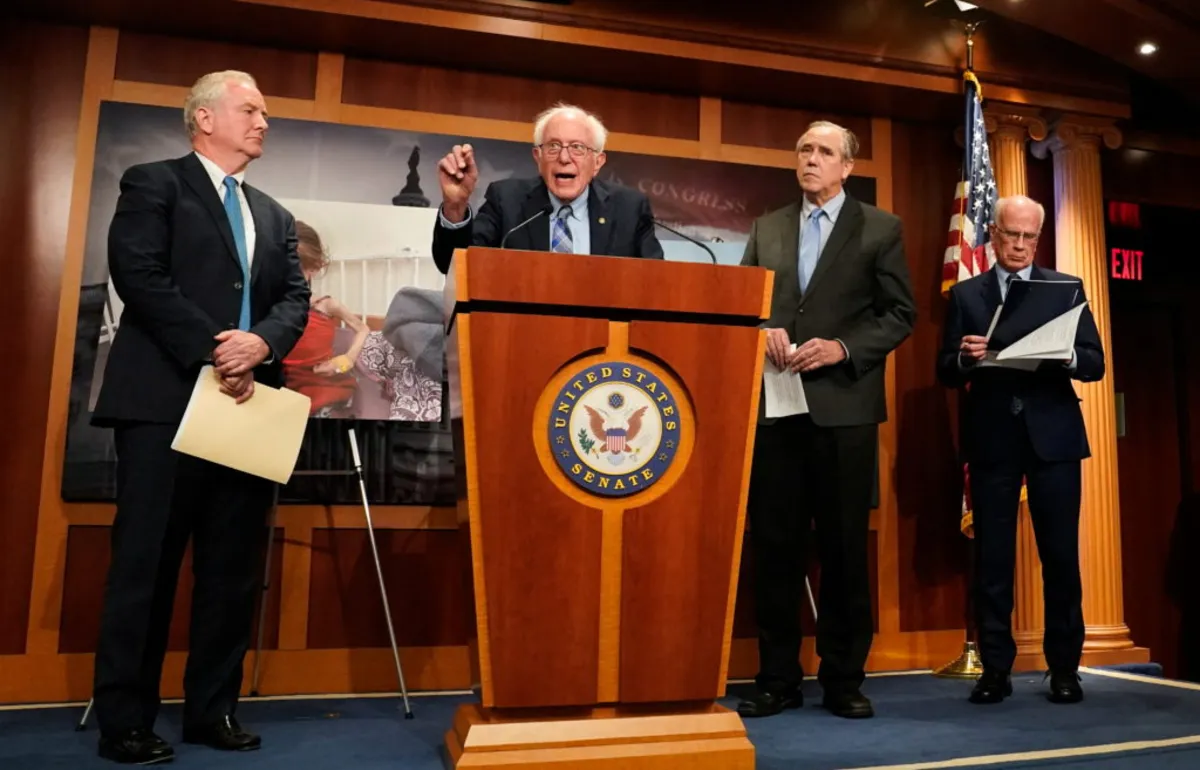
After nearly two years of significant divisions regarding the war in Gaza and support for Israel, the Democratic Party is now witnessing a growing rift concerning its policy toward Iran. Progressive members are calling for a unified opposition to President Donald Trump’s recent announcement of U.S. military strikes against Iranian nuclear sites, while party leaders are adopting a more cautious approach. This situation reflects a longstanding consensus among U.S. leaders that Iran must not be allowed to develop a nuclear weapon, a position that has garnered bipartisan support for two decades.
Iran, recognized as a longstanding adversary of the United States, has been implicated in supporting groups that have targeted Americans throughout the Middle East and have openly threatened Israel. However, Trump’s recent announcement of military action against Iran could exacerbate existing tensions within the Democratic Party, echoing the divide between his Make America Great Again base and more interventionist conservatives.
Ken Martin, the Chair of the Democratic National Committee, emphasized the contradiction in Trump's recent military decisions against his prior statements advocating for the de-escalation of conflicts. “Americans overwhelmingly do not want to go to war. Americans do not want to risk the safety of our troops abroad,” Martin stated, highlighting the public's wariness of military engagements.
Senator Peter Welch, a Democrat from Vermont, voiced his concerns about the implications of U.S. military involvement in Iran, stating, “This bombing was an act of war that risks retaliation by the Iranian regime.” As progressives publicly denounced Trump's military intervention, party leadership advocated for congressional approval before any military strikes, reflecting a desire to ensure that the use of force adheres to constitutional requirements.
Martin reiterated this sentiment, emphasizing the necessity for Trump to present his case to Congress. “Americans do not want a president who bypasses our constitution and pulls us towards war without Congressional approval,” he asserted. Senator Tim Kaine echoed this sentiment, labeling Trump’s actions as “horrible judgment” and advocating for a vote among senators regarding the military action in Iran.
As the 2028 presidential race looms, many prominent Democrats have remained silent on the Israel-Iran situation, highlighting the political sensitivity surrounding the issue. Joel Rubin, a former deputy assistant secretary of state under President Barack Obama, noted that the Democratic Party's constituents are increasingly critical of Israel’s actions in Gaza, making it challenging for politicians to support military interventions that could be perceived as aligning with Israeli interests.
Progressive members, such as Representative Ro Khanna from California, see Trump's potential military action as pivotal for the Democratic Party's identity. Khanna has pushed for legislation demanding that Trump terminate military actions against Iran unless explicitly authorized by Congress. His remarks reflect a broader sentiment that prioritizes domestic over foreign expenditures, arguing that military strikes could divert valuable resources from pressing domestic needs.
Bernie Sanders, an independent senator who previously sought the Democratic presidential nomination, criticized support for military action against Iran, asserting that it would be a “catastrophic mistake.” He has reintroduced legislation aimed at prohibiting federal funds for military actions against Iran, arguing that U.S. intervention would be both unwise and illegal. While Senate Democratic leader Chuck Schumer has previously supported similar initiatives, he has yet to take a definitive stance on the current situation.
Some Democratic strategists believe the party must adopt a clear anti-war position to unite its base. Tommy Vietor, a former aide to President Obama, urged Democratic leaders to vocally oppose war with Iran and demand congressional approval for any military action.
The Biden administration's strong support for Israel amid its conflict with Hamas complicates the political landscape for the Democratic Party as it heads into the 2024 elections. Trump has been working to capitalize on these divisions to appeal to both Arab American voters and Orthodox Jews. The ongoing Israel-Iran war presents a critical challenge for a party striving to mend its coalition before the upcoming midterms and the 2028 presidential race.
In a statement following Israel’s military strikes against Iran, Schumer reaffirmed the United States’ commitment to Israel’s security, emphasizing the need for a robust defense as tensions escalate. Meanwhile, other Democrats have criticized Israel's actions, asserting that Prime Minister Netanyahu is undermining diplomatic efforts to curtail Iran’s nuclear ambitions. Senator Chris Murphy pointed out that Trump’s withdrawal from the nuclear agreement in 2018 significantly contributed to the current tensions.
Recent polling data from the Pearson Institute and the Associated Press-NORC Center for Public Affairs Research reveals that approximately half of Democrats believe the U.S. is too supportive of Israel, with many attributing significant responsibility for the ongoing conflict to the Israeli government. The data indicates that 60% of Democrats and 50% of Republicans view Iran as an adversary in conflict with the U.S., complicating the party's messaging as it navigates internal and external pressures.
As the Democratic Party grapples with its stance on foreign interventions and support for Israel, the situation remains fluid. Navigating these divisions will be crucial for the party’s unity and electoral prospects in the years to come.